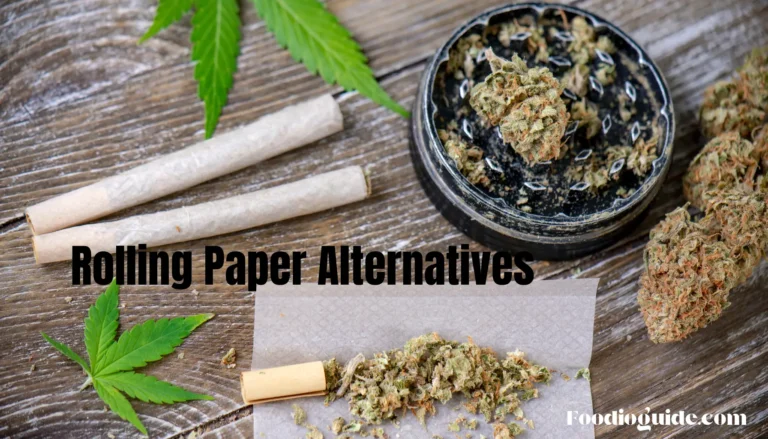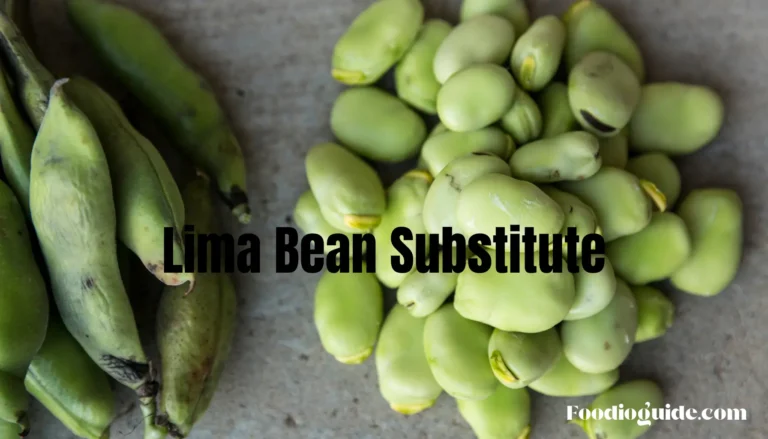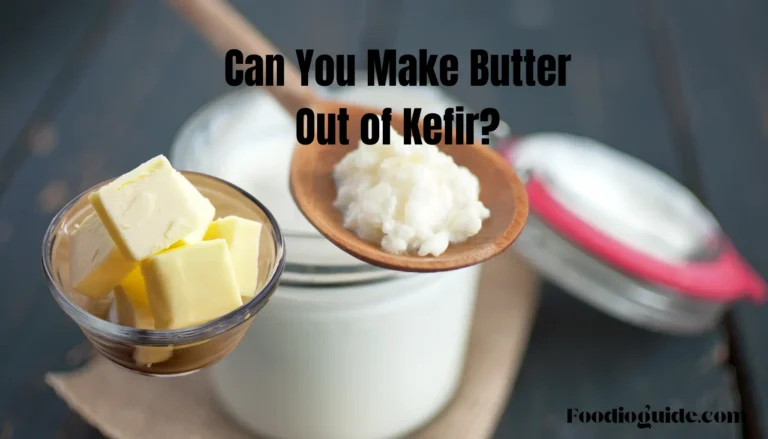Substitutes for Liquid Smoke: Alternatives for Your Cooking
Liquid smoke is a powerful ingredient that imparts a smoky flavor to dishes, mimicking the effect of traditional smoking techniques. However, not everyone has liquid smoke in their pantry, or they may prefer not to use it for various reasons. Whether you are looking for a more natural alternative or a substitution due to dietary preferences, there are plenty of excellent options. In this blog, we will explore the best substitutes for liquid smoke, and help you choose the right one for your recipe.
What is Liquid Smoke, and Why Do We Use It?
Liquid smoke is created by capturing the smoke from burning wood chips or sawdust and condensing it into a liquid form. This product is often used to add a smoky flavor to dishes without the need for a smoker or grill. It’s especially useful in recipes that call for a smoky, grilled, or charred taste, such as in barbecue sauces, marinades, or vegetarian dishes that aim to replicate the smoky flavor of grilled meats.
While liquid smoke is highly concentrated and effective, it’s not always a go-to ingredient for everyone. Whether it’s due to concerns over its processing or the specific flavor it provides, many cooks are in search of substitutes for liquid smoke that are just as effective and perhaps even more natural. Below, we’ll dive into some of the best options that will elevate your cooking while providing that rich, smoky taste.
Smoked Paprika: A Smoky and Sweet Alternative
Smoked paprika is a fantastic substitute for liquid smoke that provides a mild, smoky flavor with a slight sweetness. This spice is made from dried and smoked red peppers, giving it a distinct taste that closely resembles the smokiness liquid smoke offers. It’s perfect for a variety of dishes, including meats, vegetables, soups, and stews.
Why Choose Smoked Paprika?
Smoked paprika is not only a natural substitute but also a versatile ingredient that enhances the flavor profile of many dishes. You can use it in chili, barbecued meats, or even add it to a marinade for roasted vegetables. Smoked paprika is available in both sweet and hot varieties, so you can choose the one that best suits your recipe.
Additionally, smoked paprika can be used in conjunction with other spices like garlic powder, onion powder, and cumin to recreate a more complex smoky flavor. Because it’s in powder form, it’s easy to measure and incorporate into your recipes, making it a convenient and effective substitute for liquid smoke.
Chipotle Powder: Add a Kick of Spice
If you’re looking for a smoky flavor with a little more heat, chipotle powder is an excellent choice. Chipotle is a type of smoked jalapeño pepper, and when ground into a powder, it delivers both smokiness and spiciness. This makes it an ideal alternative if you want to add an extra punch to your dish.
How to Use Chipotle Powder as a Substitute
To use chipotle powder, start with a small amount as it can be quite spicy. It works particularly well in barbecue rubs, sauces, and marinades, and can even be sprinkled onto roasted vegetables for a smoky, fiery kick. Chipotle powder pairs wonderfully with other bold spices like cumin, chili powder, and cayenne, allowing you to build a complex, layered flavor profile.
Although it may not provide the same liquid consistency as liquid smoke, chipotle powder is a great substitute for liquid smoke in dry rubs and other recipes where the smokiness and heat are paramount.
Apple Cider Vinegar with Smoked Salt
If you’re after a smoky yet tangy alternative, try combining apple cider vinegar with smoked salt. Apple cider vinegar adds a sharpness and acidity to dishes, while smoked salt infuses the flavor of smoke. This duo can recreate the smokiness of liquid smoke, while providing a more balanced taste.
The Perfect Pair: Apple Cider Vinegar and Smoked Salt
To use this combination, simply mix apple cider vinegar with a small amount of smoked salt and incorporate it into your recipe. This works well in sauces, marinades, or even as a finishing touch on grilled meats. The acidity from the vinegar complements the richness of the smoked salt, giving your dish a smoky, tangy flavor reminiscent of the barbecue.
This pairing is an excellent substitute for liquid smoke for those who want a more natural and tangy flavor with a smoky depth. The ingredients are widely available and can be used in a variety of dishes without overpowering the main flavors.
Tea-Smoking: A Unique Method for Smoky Flavors
For a more hands-on approach, you can try tea-smoking. This method involves using tea leaves, rice, and sugar to create smoke, which is then used to infuse smoky flavors into food. It’s a great technique if you’re looking to create your own liquid smoke alternative from scratch.
How to Tea-Smoke Your Food
Tea-smoking is relatively easy to do at home. Simply combine loose tea leaves (black tea or green tea work best), sugar, and rice in a pan, and heat it over medium heat. Place a rack above the mixture to hold your food, and cover the pan to trap the smoke. Allow your food to absorb the smoke for several minutes, and you’ll have a delicious smoky flavor without liquid smoke.
This method can be a bit more time-consuming but offers a natural and customizable way to infuse your dishes with smokiness. It’s an innovative substitute for liquid smoke for anyone willing to experiment with flavors and techniques.
See also: What to Eat as a Side with Tilapia: Perfect Pairings for a Meal
Grilled Ingredients: Natural Smoke from the Grill
If you happen to have access to a grill, using grilled ingredients can be a natural and straightforward way to substitute for liquid smoke. Grilled vegetables, fruits, and meats pick up that signature smoky flavor that’s often associated with liquid smoke, especially when they’re cooked over charcoal.
How to Incorporate Grilled Ingredients for Smoky Flavor
For an easy smoky flavor, simply grill your ingredients before adding them to your dish. For example, roasted tomatoes or peppers can provide a rich smoky depth, while grilled onions can add both sweetness and smokiness. You can also grill fruits like peaches or pineapples for a sweet, smoky addition to sauces and marinades.
This natural substitute for liquid smoke gives your dishes an authentic, wood-fired flavor and allows you to control the level of smokiness. Whether you’re grilling vegetables for a smoky salad or meat for a barbecue, the results are sure to impress.
Molasses and Brown Sugar: Sweet and Smoky Flavor
For those who want a sweeter alternative to liquid smoke, a combination of molasses and brown sugar can provide a rich, smoky-sweet flavor that mimics the depth of a traditional barbecue sauce. This substitute works particularly well in recipes that require a smoky glaze, such as on meats or roasted vegetables.
Sweetening the Deal with Molasses and Brown Sugar
Molasses offers a deep, slightly bitter sweetness, while brown sugar provides the caramelized, sugary flavor that complements the smokiness. This pairing can be used to create smoky sauces or added directly to recipes like baked beans, pork ribs, or even marinades.
By adjusting the ratio of molasses to brown sugar, you can create the perfect level of sweetness and smokiness for your dish, making it a great substitute for liquid smoke in recipes where a smoky-sweet flavor is desired.
Store-Bought Smoky BBQ Sauce
If you’re looking for a quick and easy option, many store-bought smoky BBQ sauces can work as a substitute for liquid smoke. These sauces are already packed with a smoky flavor and are designed to complement a variety of dishes, from meats to vegetables.
How to Choose the Right Smoky BBQ Sauce
When selecting a BBQ sauce, look for one that emphasizes smokiness on the label, as this will ensure that it has the right flavor profile. You can use smoky BBQ sauce as a marinade, glaze, or dipping sauce for meats, tofu, or vegetables. It’s also a great option for adding that final smoky touch to dishes like pulled pork sandwiches or grilled chicken.
Using store-bought smoky BBQ sauce is an easy substitute for liquid smoke that saves you time while still delivering the smoky, bold flavor that you crave.
Conclusion: Choose the Best Substitute for Liquid Smoke
Whether you’re avoiding liquid smoke for dietary reasons, don’t have it on hand, or just want to experiment with different flavors, there are many excellent alternatives. From smoked paprika to chipotle powder, apple cider vinegar with smoked salt, tea-smoking, and more, each substitute provides its unique twist on the smoky flavor that liquid smoke imparts.
The key to choosing the right substitute is understanding your dish and the level of smokiness you desire. Some options, like smoked paprika or chipotle powder, offer a more intense smokiness, while others, like apple cider vinegar with smoked salt, provide a more subtle flavor. No matter which substitute you choose, these alternatives will help you create delicious, smoky dishes without the need for liquid smoke.
Experiment with these options and find the one that best suits your taste preferences. With these substitutes, you’ll never miss liquid smoke again!
FAQ’s
1. What is the best substitute for liquid smoke?
The best substitute for liquid smoke depends on your recipe and flavor preferences. Popular alternatives include smoked paprika, chipotle powder, and apple cider vinegar with smoked salt. Each offers a unique smokiness that can replicate the flavor of liquid smoke in different dishes.
2. Can I use smoked paprika instead of liquid smoke?
Yes, smoked paprika is an excellent substitute for liquid smoke. It provides a mild smoky flavor with a slight sweetness, making it ideal for many recipes, including stews, soups, and marinades.
3. Is there a non-spicy substitute for liquid smoke?
Yes, smoked paprika and smoked salt are non-spicy substitutes for liquid smoke. Both ingredients provide smokiness without adding heat to your dishes.
4. How do I use apple cider vinegar as a substitute for liquid smoke?
You can use apple cider vinegar in combination with smoked salt to create a tangy and smoky flavor. Mix a small amount of smoked salt with apple cider vinegar and add it to your recipe to replicate the smoky flavor that liquid smoke imparts.
5. Can chipotle powder replace liquid smoke in a recipe?
Yes, chipotle powder is a great substitute for liquid smoke, especially if you want to add a smoky flavor with a bit of heat. Use it in marinades, rubs, and sauces for a smoky and spicy kick.
6. What can I use as a liquid smoke alternative for vegan dishes?
For vegan dishes, smoked paprika, liquid aminos, and smoked salt are great substitutes for liquid smoke. These options provide the smoky flavor without any animal-derived ingredients.
7. Does tea-smoking work as a substitute for liquid smoke?
Yes, tea-smoking is a fantastic natural alternative to liquid smoke. You can use black or green tea leaves, along with rice and sugar, to create smoke and infuse it into your dishes for a unique smoky flavor.
8. Can I use a barbecue sauce as a substitute for liquid smoke?
Yes, many store-bought barbecue sauces contain smoky flavors and can be used as a substitute for liquid smoke. They work well in marinades, glazes, and sauces to add a smoky touch to your dish.
9. How do I make my own liquid smoke substitute at home?
To make your own liquid smoke substitute at home, try tea-smoking, which involves using tea leaves, rice, and sugar to create smoke. Alternatively, you can combine smoked paprika and smoked salt for an easy DIY substitute.
10. Can I use hickory smoke chips instead of liquid smoke?
Yes, hickory smoke chips can be used as a substitute for liquid smoke. You can either use them directly on a grill or infuse the smoky flavor into your dishes by soaking the chips and adding the liquid to your recipes.
11. Is smoked salt a good replacement for liquid smoke?
Yes, smoked salt is an excellent substitute for liquid smoke. It’s made by smoking sea salt and offers a subtle smokiness that works well in a variety of dishes, including soups, sauces, and meat rubs.
12. How much chipotle powder should I use as a liquid smoke substitute?
Start with 1/4 teaspoon of chipotle powder for every teaspoon of liquid smoke in the recipe. You can adjust the quantity depending on how smoky and spicy you want the dish to be.
13. Can I use smoked paprika in desserts as a substitute for liquid smoke?
While smoked paprika is not traditionally used in desserts, you can experiment with small amounts to add a smoky flavor to chocolate-based desserts or caramel sauces. It works best when paired with sweet and savory elements.
14. Can I substitute liquid smoke with mesquite seasoning?
Yes, mesquite seasoning is a good substitute for liquid smoke, especially in barbecue recipes. It has a strong, earthy flavor that mimics the smokiness of traditional grilling.
15. How do I use molasses as a substitute for liquid smoke?
Molasses, when combined with brown sugar, can add a smoky-sweet flavor to dishes. While it doesn’t replicate the exact taste of liquid smoke, it works well in barbecue sauces and glazes, giving your dish a deep, rich smokiness.







